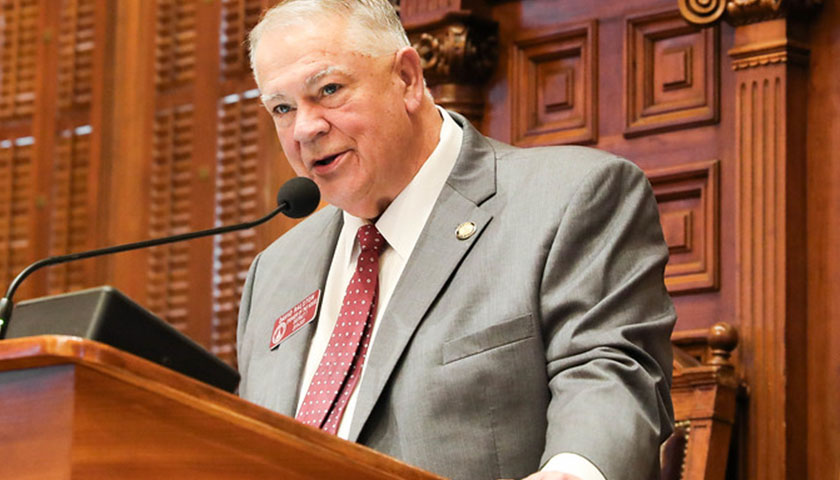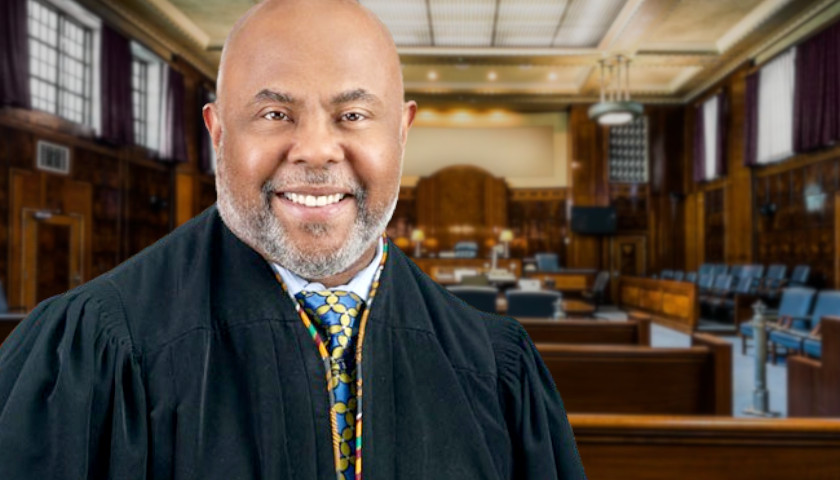Georgia Speaker of the House David Ralston (R-Blue Ridge) and House Ways and Means Chair Shaw Blackmon (R-Bonaire) on Tuesday announced legislation that would, if enacted into law, lower Georgia’s maximum income tax rate.
Ralston and Blackmon want to reduce Georgia’s maximum income tax rate from 5.75 percent to a single and flat rate of 5.25 percent. They said at a press conference that state residents would save an estimated $1 billion per year if and when the proposed cut goes into effect for calendar year 2024.
“As members of the majority caucus we believe as a core principle that government must live within its means, that there is no such thing as government money and that it belongs to Georgia taxpayers,” Ralston said at Tuesday’s press conference at the Georgia State Capitol.
“We also believe it is incumbent on us as representatives to be good stewards of the taxpayer dollars with which we are entrusted.”
In 2018 legislators passed a historic tax cut that reduced Georgia’s maximum income tax rate from six percent to 5.75 percent. Last year legislators increased the standard deduction in a tax cut that benefited primarily low- and middle-income Georgians.
Ralston said Tuesday that Georgia is “at a unique moment in history following the COVID-19 pandemic.” The state’s economy, Ralston went on to say, has performed well because state officials kept businesses open and Georgia residents working.
“Unfortunately, President Biden and his Congress have governed in a way that has given rise to record levels of inflation, the highest in more than 40 years. Last year alone the nationwide inflation rate was 7 percent. That is bad enough, until you consider that inflation in Atlanta was the highest among Georgia’s major metropolitan areas at 9.8 percent,” Ralston said.
“That means everything is costing more — food, gas, the things that Georgians buy each day. As such we have a duty to redouble our efforts and provide relief to Georgia’s families when they need it most.”
According to a statement, Ralston’s proposal also institutes a standard exemption of $12,000 for single or head-of-household filers and $24,000 for married couples filing jointly. A family of four would not pay any income tax on the first $30,000 of income, assuming they claim available dependent exemptions.
– – –
Chris Butler is an investigative journalist at The Tennessee Star and The Georgia Star News. Follow Chris on Facebook, Twitter, Parler, and GETTR. Email tips to [email protected].
Photo “David Ralston” by Werner4799. CC BY-SA 4.0.








